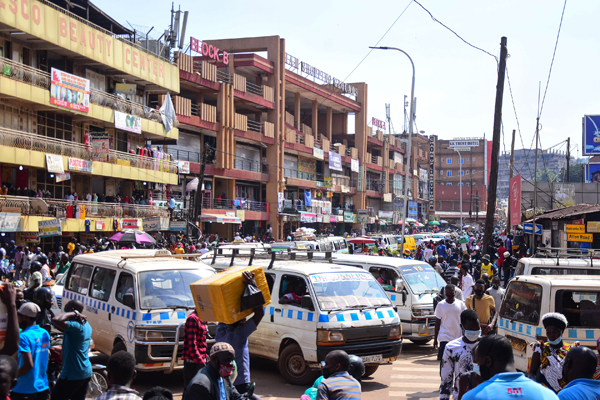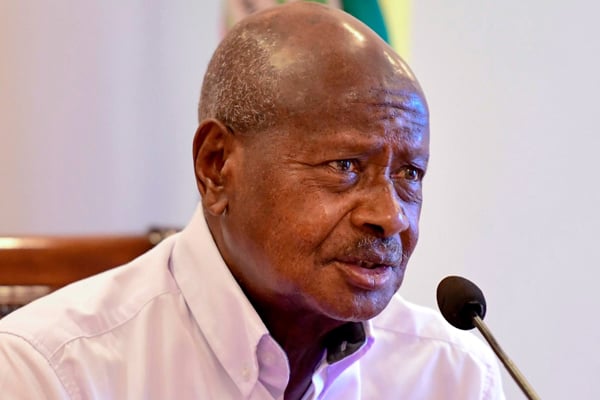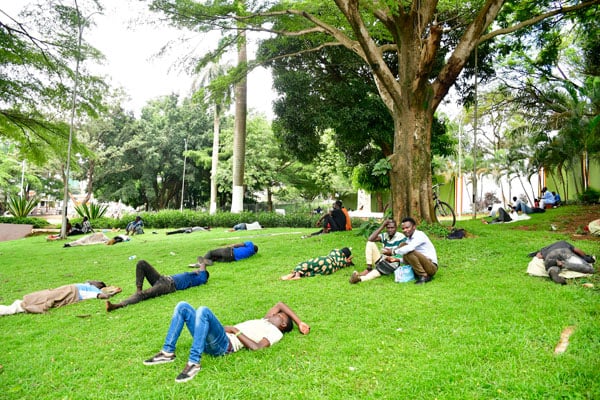Prime
World Bank tells Uganda to look for trade outside EAC

Take advantage. Uganda, the World Bank says, must take advantage of larger markets to boost the country’s export sector. PHOTO / FILE
What you need to know:
- According to Mukami R. Kariuki, for Uganda to further gains from the continental trade area, it must strengthen unity within the East African Community through active participation in regional fora as well as improve access to imported inputs to facilitate globally competitive production and participation in the global value chains.
- Others, she said, include reducing time and cost of importing and exporting through targeted customs and trade facilitation reforms.
The World Bank has said Uganda, while it needs to maximise trade within East Africa, must improve in a number of areas that will help the country to benefit from large markets such as the Africa Continental Free Trade Area (AfCFTA).
Speaking at the launch of the 20th edition of the Uganda Economic Update in Kampala yesterday, Ms Sashana Whyte, the World Bank Senior Economist, said Uganda needs to reduce or totally remove ad-hoc tariff increases as well as boost agricultural productivity to benefit from continental trade.
“Policy makers must focus on implementing policies designed to maximise the potential of regional trade,” she said, noting that government has made limited progress since 2013, when the first economic update encouraged Uganda to think strategically to boost trade beyond the East African Community by increasing agricultural exports, diversifying into a wider range of manufactured goods, and fostering growth of service exports including tourism, education, transport and logistics, and professional services.
The AfCFTA, the World Bank noted, brings a lot of potential with Uganda’s export income expected to increase by 3.3 percent.
Uganda’s exports and imports are expected to increase by 2035 with exports expected to grow by a cumulative average of $2.5b while imports will increase by about $3.1b between now and 2035.
However, Ms Sashana said, for Uganda to benefit from the continental market, there is need to lower the burden of administrative compliance and simplify customs procedures by implementing AfCFTA protocols on trade facilitation, World Trade Organisation trade facilitation agreements and boost agricultural productivity.
Other areas of improvement, she said, will include strengthening standards, complete negotiations on a series of AfCFTA protocols, establish clear, ambitious, and enforceable rules, adopt necessary domestic legislation, and build enforcement capacity.
The World Bank also noted that whereas harnessing regional trade is a key and sustainable way for Uganda to deepen growth, it must strategise to benefit from AfCFTA by overcoming hurdles that have long weakened effectiveness of existing regional arrangements.
Such hurdles, Ms Sashana said, include discriminatory technical regulations, non-harmonised sanitary and phytosanitary requirements, and complex rules of origin.
Ms Mukami R. Kariuki, the World Bank country manager, said Uganda’s merchandise exports (excluding small-scale cross-border trade) to East Africa accounted for 46.5 percent but the country’s exports to AfCFTA remained the lowest compared to regional peers.
“The AfCFTA can enable African countries, such as Uganda, to participate fully in regional and global value chains. This would in turn enable firms to operate in a more unified business environment across multiple countries, presenting opportunities to expand their scale and increase their efficiency to levels necessary to compete with established global players.”




